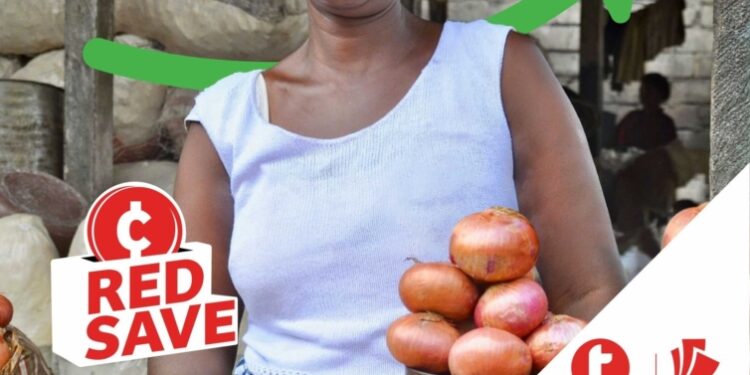A significant legal battle is brewing in Ghana’s High Court as Faustina Djagbele Abbey, an onion seller operating near the bustling Makola Market in Accra, has initiated a GH¢2 million lawsuit against Telecel, the telecommunications giant operated by Ghana Telecommunications Company Limited.
The suit alleges egregious breaches of her “privacy” and “personal liberties” due to the unauthorised use of her image for product marketing.
Filed on May 23, 2025, by her legal representative, Bernard Owiredu Donkor of Thompson Law Consult, Madam Abbey’s writ contends that Telecel’s failure to seek her consent and subsequent use of her image to promote, market, and advertise its ‘Telecel Red Save’ product across various platforms, including prominent social media channels, constitutes a clear abuse of her image rights.
The ‘Telecel Red Save’ product is understood to be a digital financial service aimed at encouraging savings among its subscriber base.
The legal action highlights a growing global and local awareness of individual privacy and image rights in the digital age.
Ghana’s Data Protection Act, 2012 (Act 843), for instance, provides a framework for protecting personal data and privacy, requiring consent for the processing of personal information, which would arguably extend to the commercial use of an individual’s likeness.
According to her Statement of Claim, Madam Abbey only became aware of the pervasive advertisement through customers and other individuals who recognised her from the bustling Makola Market, a vibrant commercial hub known to attract tens of thousands of traders and shoppers daily.
The impact on Madam Abbey extends beyond the alleged commercial exploitation.
She states that the unauthorised advertisement has brought her unwanted public scrutiny, with family members and acquaintances mistakenly believing her to be of significant financial means due to her perceived association with a major telecom brand.
This misconception, she avers, has led to strained relationships with others and significantly impacted her mental health, highlighting the often-unseen personal toll of digital privacy infringements.
Telecel Ghana, a major player in the country’s telecommunications landscape with a reported 17.2% market share in voice and data as of July 2024, now faces a potentially landmark case that could set precedents for image rights and corporate marketing ethics in the nation.
The lawsuit seeks not only monetary compensation but also declaratory reliefs from the High Court, demanding that all billboards, social media campaigns, and traditional media advertisements featuring the ‘Telecel Red Save’ product with her image be immediately pulled down.
The writ filed by Mad. Abbey is expected to be a crucial test of how Ghana’s legal system addresses individual privacy rights in the rapidly evolving digital marketing sphere.
FAUSTINA-ABBEY-v-TELECEL-STATEMENT-OF-CLAIM






